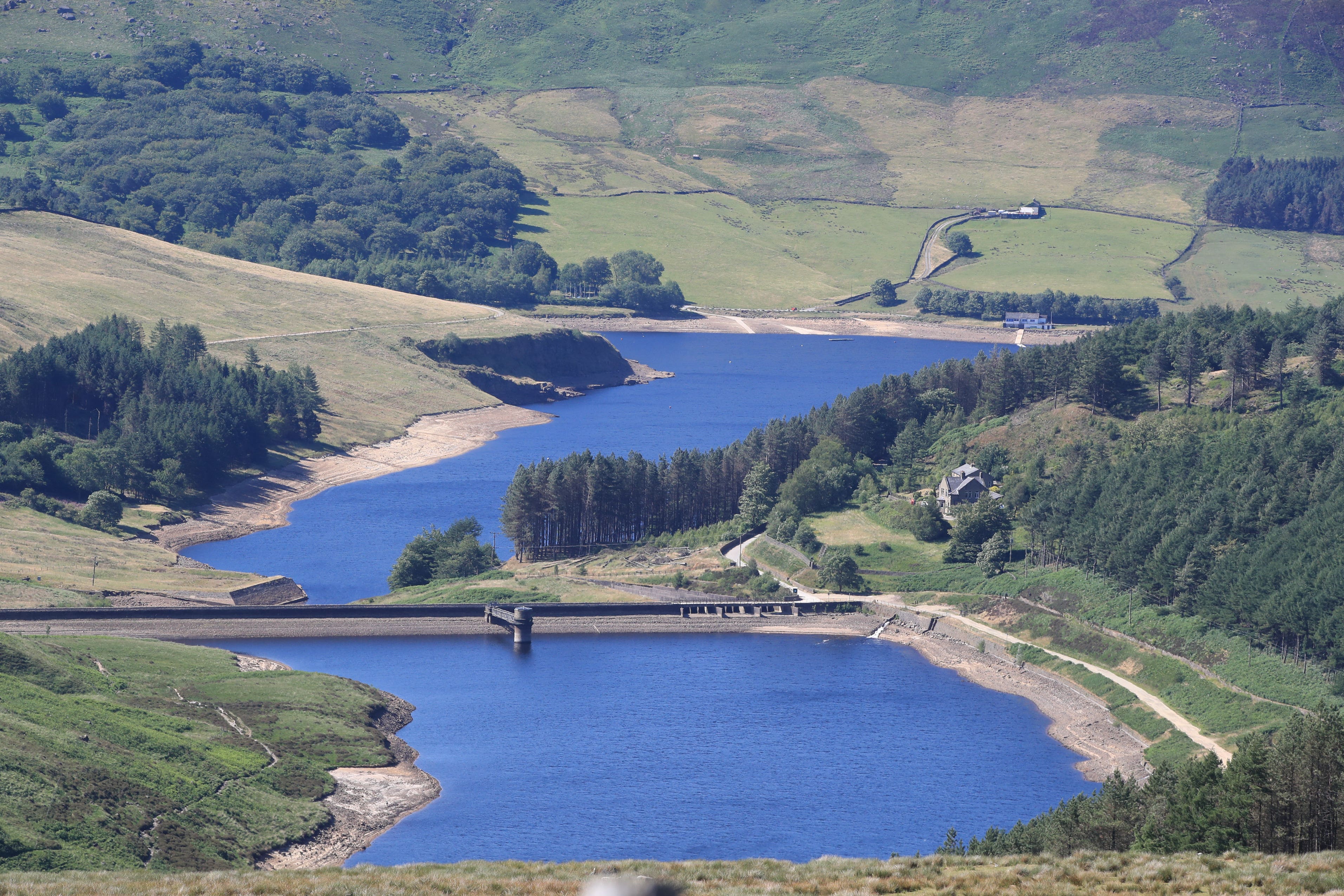
Millions more people are facing water restrictions in England after the second hosepipe ban of 2025 was announced following the driest spring for more than 100 years.
Yorkshire Water restrictions came into force on 11 July, after the region experienced just 15cm of rainfall between February and June, leaving reservoirs only 55.8 per cent full.
Hours later, South East Water announced it too would bring in a ban, affecting 1.4 million of its customers in Kent and Sussex.
It comes after the Environment Agency issued an urgent warning last month that England faces public water shortages of five billion litres a day by 2055 without urgent action to cut leaks, curb use and build new reservoirs.

What does a hosepipe ban mean?
As the name suggests, a hosepipe ban means that water customers can’t use a hosepipe for things such as watering a garden, filling a paddling pool, cleaning paths and patios or washing a car.
People are encouraged to instead use a watering can or a bucket if they need to use water outside, such as to water plants. Businesses are also still allowed to use a hosepipe if it is directly related to a commercial purpose.
Breaking the rules should not be treated as a light matter - anyone found to have used their hosepipes during a ban can be fined up to £1,000.
Where has a hosepipe ban been announced?
The first ban was announced by Yorkshire Water, which provides services across the entire region, including West, South and North Yorkshire, the East Riding of Yorkshire, North Lincolnshire and Derbyshire.
The company services around 5.5 million households and an estimated 140,000 businesses, who will now have to curb their water use. Restrictions, which are officially called a Temporary Usage Ban (TUB), started on 11 July and could last until the winter months.

“These restrictions are intended to make sure that we have enough supply for the essential needs of people across the region this year and next, as well as making sure we’re able to protect our local environment,” Mr Kaye said.
“With more dry weather forecast in the coming weeks, it is likely our stocks will continue to fall so we need to act now to maintain clean water supplies and long-term river health.”
South East Water said demand for water across Kent and Sussex had reached “the highest levels” this year and had “now reached a point where they have exceeded the limits in the company’s drought plan”.
It said that on 30 June, it supplied 680 million litres of water, more than 100 million litres more than the daily average for summer.
David Hinton, Chief Executive Officer of South East Water, said: “Continued demand at this level presents a serious concern to ensure that we can protect the environment and keep everyone supplied. Despite asking for customers' help to use water for essential uses only, regrettably we’ve now been left with no choice but to introduce this temporary use ban restriction to protect customers supplies and the environment across Kent and Sussex.
“The temporary restrictions, announced today, will mean that customers will be prevented from using hosepipes for watering their gardens, washing cars, windows and patios, or filling swimming and paddling pools.”
The company also supplies parts of Surrey, Hampshire and Berkshire, but it has not introduced bans for those regions, but is continuing to monitor the situation.
Where else could see a hosepipe ban?
Yorkshire is not the only region in the UK suffering a drought, with the north-west of England also entering drought status on 21 May.
In both areas, reservoirs have reached extremely low levels and farmers are struggling to grow crops due to the dry weather.
The East and West Midlands are also experiencing prolonged dry weather, with major water companies saying that substantial rain is required to replenish supplies.

This week, Thames Water executives warned the company will have to enforce a hosepipe ban unless the current water shortages improve “significantly”.
It said the demand for water in the Swindon and Oxfordshire areas peaked on 30 June at levels on a par with the 2022 drought and urged its 16 million customers to limit the amount of water they use to avoid the need for restrictions.
Experts have warned that increasingly extreme weather, including droughts and heatwaves, are becoming more likely and intense because of climate change.
Water companies are under increasing pressure to help customers cut demand and speed up the fixing of leaks, which lose drinking water back into the environment before it reaches people’s kitchens and bathrooms.
Second water company announces hosepipe ban as millions face restrictions in England
Hosepipe ban announced for Kent and Sussex amid ‘record water demand’
Amber heat health alerts and hosepipe bans across parts of England amid heatwave
From closing blinds to air con: Readers share heatwave survival tips
Body of missing teenage swimmer found in lake
Thousands of motorists hit with ‘do not drive’ order for popular car

.png?w=600)





